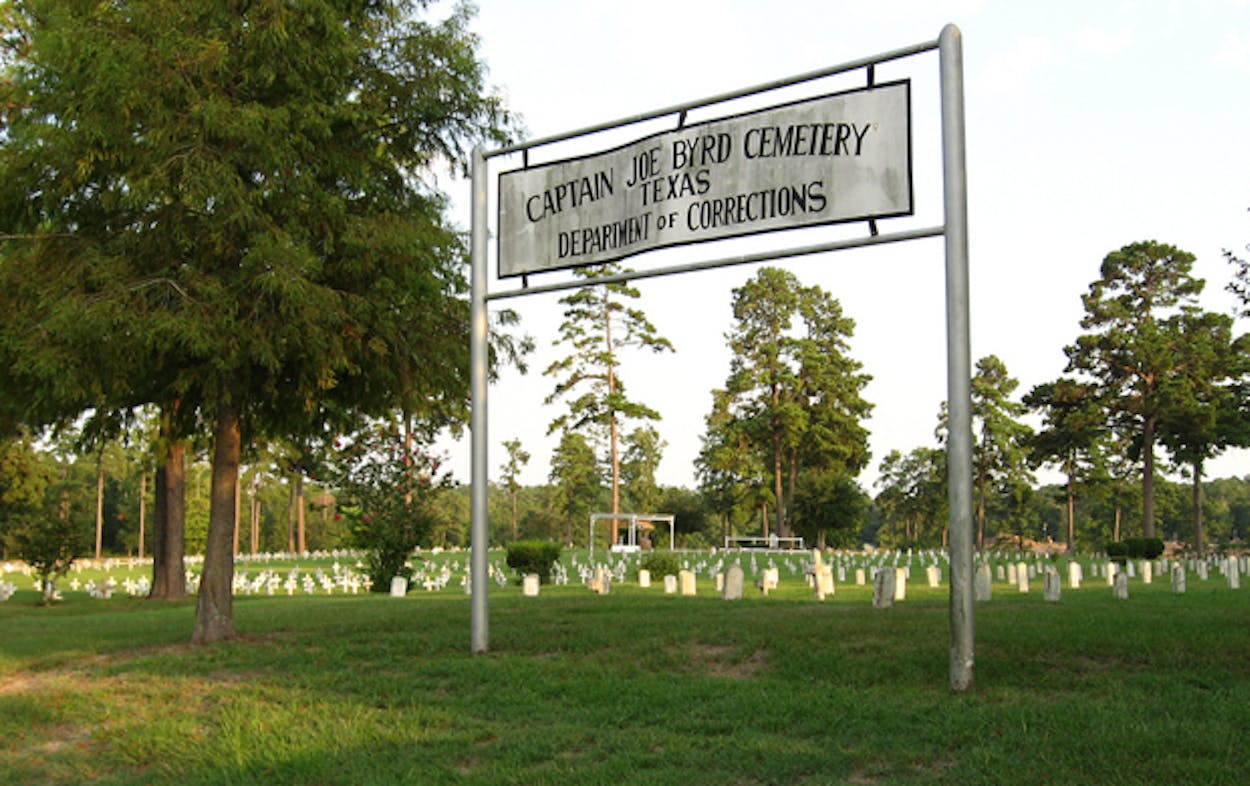Every year, some 100 inmates who die in the Texas prison system are buried at Captain Joe Byrd Cemetery outside Huntsville, the nation’s largest prison graveyard, according to the New York Times’ Manny Fernandez, who visited the 22-acre cemetery.
“In a state known for being tough on criminals . . . the Byrd cemetery has been a little-known counterpoint to the mythology of the Texas penal system,” Fernandez writes. The prison graveyard’s calm grounds and small crosses are evocative of Arlington National Cemetery, Fernandez writes, adding “[b]ut if Arlington is for heroes, the Byrd cemetery is for villains.”
The state spends $2,000 on each inmate burial after their bodies go unclaimed by their families. (From the photo slideshow accompanying the story it appears that some of that money goes towards purchasing a metal casket.) Other inmates detailed to the graveyard do most of the work, digging the graves and stenciling the names onto tombstones by hand. They also serve as mourners at the funerals, which tend to be sparsely attended by families.
They were Mr. Davis’s gravediggers but also his mourners. No one who knew Mr. Davis bothered to attend his funeral, so it was left up to Damon Gibson, serving 14 years for theft, and the rest of the prison crew to stand in silence over the grave of a man they had never met. Then Mr. Gibson and the others put their gloves on and lowered the coffin into the ground using long straps, providing him eternal rest in the one place in Texas where murderers and other convicts whose bodies are unclaimed can be interred, remembered and, if but for a few moments, honored.
Inmate interments in Byrd Cemetery, which have taken place since the mid-1800s, are only likely to increase over time as more Texans are sentenced to life without parole. (Since Governor Rick Perry signed the “life without parole” law in 2005—to be a sentencing option in capital murder cases—juries have given more than 398 convicts that sentence.)
Mark Harris, journalist and green burial advocate, offered a simple cost-cutting solution to the state on Twitter: “If cost of burying prisoners is an issue, why not use simple pine boxes instead of metal caskets?”
Commenter Kambri, whose deaf father is serving a twenty-year sentence at Huntsville, was touched by the piece and by the very existence of Byrd Cemetery:
At 65 years old with ten years left on his sentence, it is a real possibility that he will die behind bars. He mentioned this during a visit and said not to waste my money by claiming his body. He wanted me to let him go to ‘Peckerwood Hill’ as Joe Byrd Cemetery is known.When I pressed him for what he actually preferred, he said he’d want to be cremated and have his ashes spread in Lake Conroe. So, for my dad at least, it was a desire to save me the time and money. I’m glad I have the option to follow through with his final wishes. But it’s comforting to know that if I couldn’t, he’d be treated with some dignity and I’d have a place to visit him.







